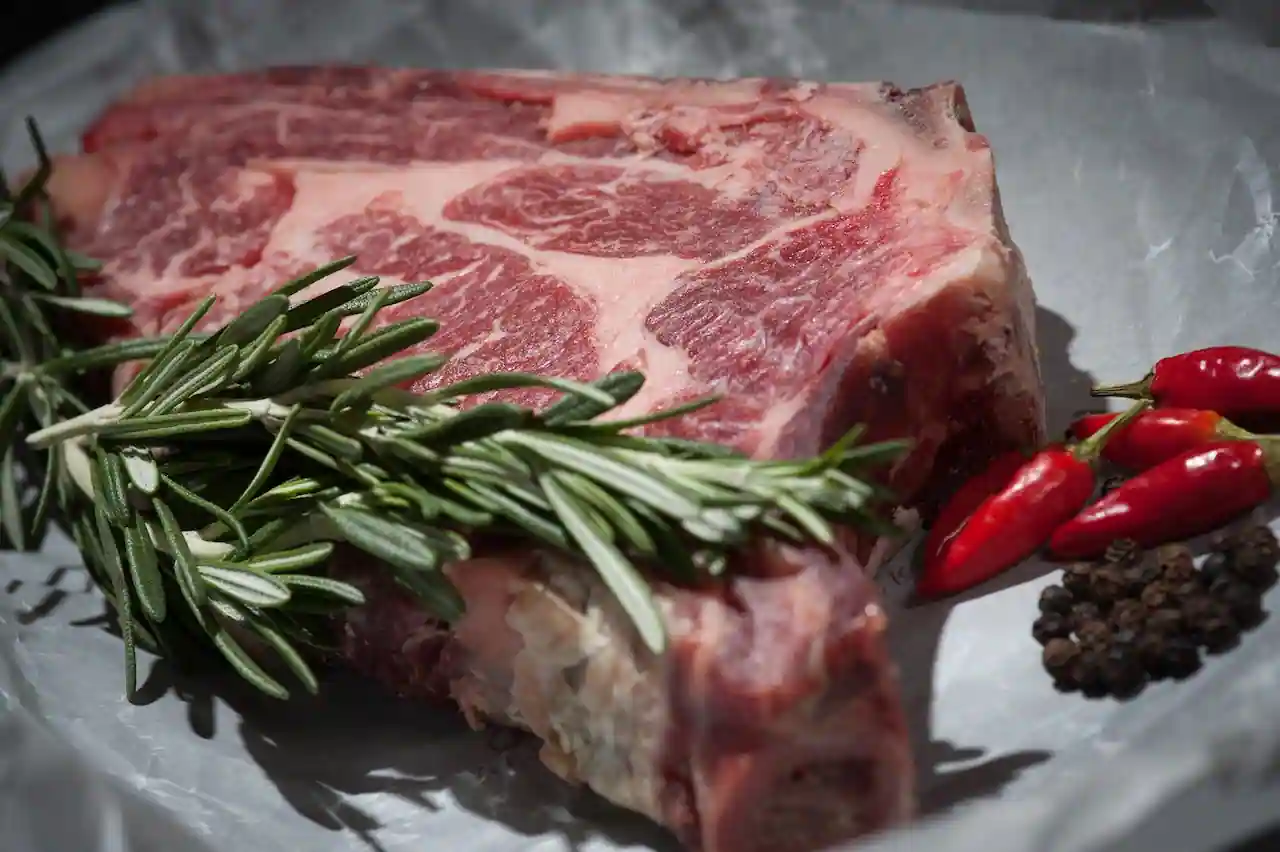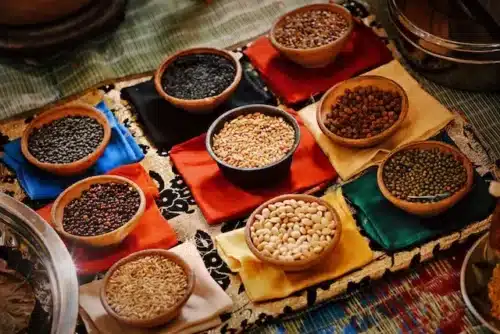
Get Fit with the Ultimate Carnivore Diet Meal Plan
In the quest for better health and weight loss, people are always looking for new and innovative diets. One such diet that has gained popularity in recent times is the Carnivore Diet meal plan. The Carnivore Diet is a diet that involves eating only animal products, such as meat, fish, and eggs, and eliminating all plant-based foods from your diet. In this article, we will take a deep dive into the Carnivore Diet, its history, and its pros and cons.
What is a Carnivore Diet?
The Carnivore Diet is a diet that involves eating only animal products and eliminating all plant-based foods from your diet. The rationale behind this diet is that humans evolved as hunters and gatherers, and our bodies are better adapted to digesting animal-based foods rather than plant-based foods. Proponents of the diet claim that it can lead to weight loss, improved mental clarity, increased energy, and reduced inflammation.
The History of the Carnivore Diet
The idea of eating only animal products is not new. Our ancestors, the hunter-gatherers, consumed a diet that was predominantly animal-based, as they relied on hunting wild animals for food. In more recent times, the Carnivore Diet gained popularity through the work of Dr. Shawn Baker, a former orthopedic surgeon, who adopted the diet and claimed that it helped him with his joint pain and improved his athletic performance.
Benefits of the Carnivore Diet
For starters, many people report weight loss as a result of following this diet. This is likely due to the high protein content in animal products, which can help to increase feelings of fullness and reduce overall calorie intake.
The carnivore diet has been touted for its potential health benefits, such as:
- Weight Loss: A carnivore diet can promote weight loss due to the elimination of carbohydrates and processed foods, leading to a reduction in calories consumed.
- Improved Blood Sugar Control: A carnivore diet can improve blood sugar control by eliminating carbohydrates that can cause spikes in blood sugar levels.
- Reduced Inflammation: A carnivore diet can reduce inflammation in the body by eliminating foods that can trigger an inflammatory response, such as grains and dairy.
- Ease of Meal Planning: Following a carnivore diet can simplify meal planning as it consists of only a few food groups.
- Improved Digestion: Some individuals report improved digestion when following a carnivore diet, as they are eliminating potential irritants to the gut, such as fiber.
Foods to Eat on the Carnivore Diet
The carnivore diet is all about eating meat, fish, eggs, and certain dairy products. It’s a highly restrictive diet, but proponents argue that it’s one of the healthiest ways to eat. Here are some of the foods that are allowed on the carnivore diet:
1. Beef
Beef is a staple food on the Carnivore Diet meal plan and provides a rich source of protein, healthy fats, and essential nutrients such as iron and vitamin B12. Choose high-quality, grass-fed beef whenever possible to maximize the nutrient content and avoid additives and preservatives.
2. Fish and Seafood
Fish and seafood are excellent sources of protein, omega-3 fatty acids, and essential minerals such as selenium and iodine. Include a variety of wild-caught fish and shellfish in your diet to reap the full benefits.
3. Poultry
Poultry such as chicken, turkey, and duck are also great sources of protein and essential nutrients such as zinc and selenium. Choose organic, pasture-raised poultry whenever possible to avoid harmful additives and to ensure the highest nutrient content.
4. Eggs
Eggs are a versatile and nutrient-dense food that can be easily incorporated into the Carnivore Diet. They provide high-quality protein, healthy fats, and essential vitamins and minerals such as choline and vitamin D. Choose organic, pasture-raised eggs whenever possible to ensure the highest nutrient content.
5. Organ Meats
Organ meats such as liver, heart, and kidney are some of the most nutrient-dense foods on the planet. They provide a rich source of essential vitamins and minerals such as vitamin A, iron, and zinc. Include organ meats in your diet regularly to maximize the nutrient content of your meals.
6. Bone Broth
Bone broth is a nourishing and healing food that is rich in amino acids and minerals such as calcium, magnesium, and potassium. It can help improve digestion, boost immunity, and support overall health. Make your own bone broth using high-quality bones and enjoy it as a nourishing drink or use it as a base for soups and stews.
The reasoning behind these food choices is that animal products are rich in protein, which is essential for building and repairing tissues in the body. They also contain important nutrients like iron, zinc, and vitamin B12.
While these are the main food groups allowed on the carnivore diet meal plan, it’s important to note that not all meats and dairy products are created equal. Grass-fed and pasture-raised meats and dairy are healthier and more nutrient-dense than conventionally raised options, so it’s important to choose high-quality products whenever possible.
Foods to Avoid on the Carnivore Diet
This diet is said to provide numerous health benefits, including weight loss, improved mental clarity, and better digestion. However, to get the most out of this diet, it’s important to know which foods to avoid. Here are the top foods to avoid on the carnivore diet.
1. Grains
Grains, including wheat, oats, barley, and rice, are not allowed on the carnivore diet. They are high in carbohydrates and may cause inflammation in the body. Several chronic illnesses, including heart disease, diabetes, and cancer, are connected to inflammation.
2. Legumes
Legumes, such as beans, lentils, and peas, are also not allowed on the carnivore diet. They contain anti-nutrients, such as lectins and phytates, which can interfere with the absorption of nutrients in the body. They may also cause digestive issues, such as bloating, gas, and diarrhea.
3. Processed Foods
Processed foods, such as chips, cookies, and candy, are not allowed on the carnivore diet. They are high in sugar, artificial additives, and preservatives, which can have negative effects on health. They may also cause inflammation in the body and contribute to weight gain.
4. Vegetable Oils
Vegetable oils, such as canola, soybean, and corn oil, are highly processed and contain high levels of inflammatory omega-6 fatty acids. These can contribute to chronic inflammation and negatively impact your health in the long run. Instead, opt for healthy fats such as olive oil, coconut oil, and grass-fed butter.
7 Day Meal Plan for the Carnivore Diet
Here is a one-week meal plan for the carnivore diet, complete with breakfast, lunch, and dinner options:
Monday – Day 1: Embrace the Meat Feast
- Breakfast: Ribeye Steak
- Lunch: Ground Beef Burgers
- Dinner: Grilled Chicken Thighs
Tuesday – Day 2: Meaty Delights Continue
- Breakfast: Bacon and Eggs
- Lunch: Salmon Fillet
- Dinner: Pork Chops
Wednesday – Day 3: The Carnivore Journey Persists
- Breakfast: Sausage Links
- Lunch: Tuna Steak
- Dinner: Lamb Chops
Thursday – Day 4: Keeping It Meaty
- Breakfast: Duck Eggs
- Lunch: Turkey Slices
- Dinner: Bison Ribeye
Friday – Day 5: Nourishment from Carnivore Foods
- Breakfast: Chicken Liver
- Lunch: Venison Steak
- Dinner: Beef Brisket
Saturday – Day 6: Meat-Driven Excellence
- Breakfast: Pork Belly Slices
- Lunch: Quail
- Dinner: Rabbit Stew
Sunday – Day 7: Savor the Carnivore Victory
- Breakfast: Steak and Eggs
- Lunch: Pork Ribs
- Dinner: Wild Boar
Remember to choose high-quality, nutrient-dense animal products and incorporate a variety of foods into your meals.
Read More: 30 day Vegan Weight Loss Diet Plan
Pros of Following a Carnivore Diet Meal Plan
Weight Loss
One of the main benefits of following the Carnivore Diet is weight loss. Since the diet involves eliminating all carbohydrates and plant-based foods, it can lead to a significant reduction in calorie intake, resulting in weight loss.
Improved Mental Clarity
Proponents of the Carnivore Diet claim that the diet can improve mental clarity and reduce brain fog. This is because the diet eliminates all processed foods and sugars that can lead to cognitive decline.
Increased Energy
Another benefit of following the Carnivore Diet is increased energy levels. Since the diet is high in protein and fat, it can provide sustained energy throughout the day.
Reduction in Inflammation
Inflammation is the root cause of many chronic diseases, such as arthritis and heart disease. The Carnivore Diet meal plan can help reduce inflammation by eliminating all processed foods and sugars that can contribute to inflammation.
Improved Blood Sugar Control
The Carnivore Diet can also help improve blood sugar control, particularly in people with type 2 diabetes. Since the diet eliminates all carbohydrates, it can lead to a reduction in blood sugar levels.
Reduced Cravings
The Carnivore Diet can help reduce cravings for processed foods and sugar. This is because the diet eliminates these foods, which can lead to a reduction in cravings.
Improved Gut Health
The Carnivore Diet can also improve gut health by eliminating all plant-based foods that can be difficult to digest. The diet is also rich in nutrients that can support gut health.
Cons of Following a Carnivore Diet Meal Plan
Nutrient Deficiencies
One of the primary problems with the Carnivore Diet meal plan is the possibility of vitamin shortages. Since the diet eliminates all plant-based foods, it can be deficient in essential vitamins and minerals such as vitamin C, fiber, and potassium.
Increased Risk of Heart Disease
Another concern with the Carnivore Diet is the potential for increased risk of heart disease. The diet is high in saturated fat, which can contribute to high cholesterol levels and increase the risk of heart disease.
Possible Damage to Kidneys and Liver
The high protein intake associated with the Carnivore Diet can lead to increased strain on the kidneys and liver, potentially leading to damage in the long run.
Reduced Fiber Intake
Eliminating all plant-based foods from the diet can also lead to a reduction in fiber intake. Fiber is important for gut health and helps regulate digestion.
Difficulty Maintaining Social Connections
Following the Carnivore Diet can be challenging when it comes to maintaining social connections. It can be difficult to find suitable options when dining out with friends or attending social events.
Environmental Impact
Another concern with the Carnivore Diet meal plan is its environmental impact. The production of meat products can contribute to greenhouse gas emissions and deforestation.
Read More: 7 Effective Tips For Your Healthy Diet
Conclusion
The Carnivore Diet is a controversial diet that involves eating only animal products and eliminating all plant-based foods from your diet. While there are potential benefits such as weight loss, improved mental clarity, and reduced inflammation, there are also concerns about nutrient deficiencies, increased risk of heart disease, and possible damage to kidneys and liver. Before beginning any new diet, consult with a healthcare practitioner.
FAQs
1. Is the Carnivore Diet safe for everyone?
The Carnivore Diet may not be safe for everyone, particularly those with underlying health conditions or nutrient deficiencies. It is critical to consult with a healthcare expert before beginning the diet.
2. Can you lose weight on the Carnivore Diet?
Yes, the Carnivore Diet can lead to weight loss due to its low-calorie intake.
3. Can you drink coffee on the carnivore diet?
Coffee is generally allowed on the carnivore diet, as long as it is consumed black and without any added sweeteners or dairy products.
4. Are there any potential nutrient deficiencies associated with the Carnivore Diet?
Yes, there is a risk of nutrient deficiencies with the Carnivore Diet, particularly for vitamins and minerals found in plant-based foods such as vitamin C, fiber, and potassium.
5. Can the Carnivore Diet improve gut health?
While the Carnivore Diet may improve gut health for some individuals, it can also lead to a reduction in fiber intake which is important for gut health. Before making any major dietary changes, consult with a healthcare practitioner.
6. Is the Carnivore Diet sustainable for the environment?
The production of meat products can contribute to greenhouse gas emissions and deforestation, so the Carnivore Diet may not be sustainable for the environment in the long term. It is important to consider the environmental impact of our food choices and make informed decisions.
7. What are the potential risks of the carnivore diet?
Some potential risks of the carnivore diet include nutrient deficiencies, constipation, and an increased risk of heart disease and certain types of cancer. It is important to consult with a healthcare professional before starting this dietary plan.





